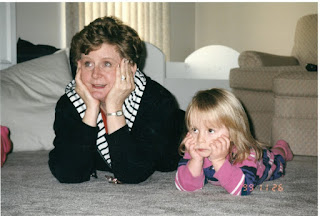Why are kids hyper-critical of their parents when they will most likely spend the next twenty years becoming just like them?
Back in college, my brother and I would get together with our fiancés and spend the weekend at my parent’s home in Chattanooga. Part of our ritual would be a contest to determine whose parents did the weirdest things in our younger days.
There were my mom’s mental health moments during our summer vacations. She would send all of us outside and then lock all the doors. Any ringing doorbells or door knocks were met with harsh response. We would find ways to amuse ourselves for a couple hours then discover doors that opened again. We never wondered what she did in there.
My dad told terrible jokes and retold them endlessly. There is a particular one about nacho cheese that was his personal favorite. I cringed when he told it. It’s not funny. It never was. Of course, I’ve told the same joke to my kids dozens of times.
Occasionally Kim and I sit around at night and try to predict which of our actions will make the kids’ list of weird parent things. Erin tells a great (and exaggerated) story about me throwing softballs at her when she was four years old until she wasn’t scared of getting hit by them anymore.
James talks about his eight years of karate lessons as if he were a prisoner of war suspended in a bamboo cage. I can’t begin to guess the stories they tell when we aren’t there to defend ourselves.
While I was in college poking fun at my father, I was studying the same major he had, relaxing to the same hobbies as him, and becoming engaged to a woman who nearly mirrored his wife. But no matter how much everyone else saw our similarities, all I could see were the specific areas where I wanted to be different.
It’s all a harmless part of bonding as a family. It’s as much a part of forming parent/child relationships as offering unsolicited advice and trying not to listen to it.
Finding our own paths in life is all about making our own choices. It can seem isolating at times but is necessary. Each of us must come to God on our own. Acceptance of the savior must be born out of each unique heart.
It is hard for parents to celebrate family members pulling away. It’s equally difficult for an adult child to lean in and love the family he or she is trying to break away from to form their own beliefs.
Love is hard. It requires respecting each others’ needs and accepting that helping your kids sometimes means giving them space. It means finding creative ways to show your love that will encourage them even when they are pushing you away.
For kids, independence isn’t only about finding out who you aren’t. It’s mostly about embracing who you are. Build your memories from life’s best moments, not just the weird ones. There is a path set for you before the world was created and God placed the great loves of your life along that path as guides.
Unconditional love means knowing who you are. It also means accepting that your individuality is best expressed in the way you love others.
If you can figure that out, good for you. Give your kids a break while they figure it out, too.
And their kids after them.

